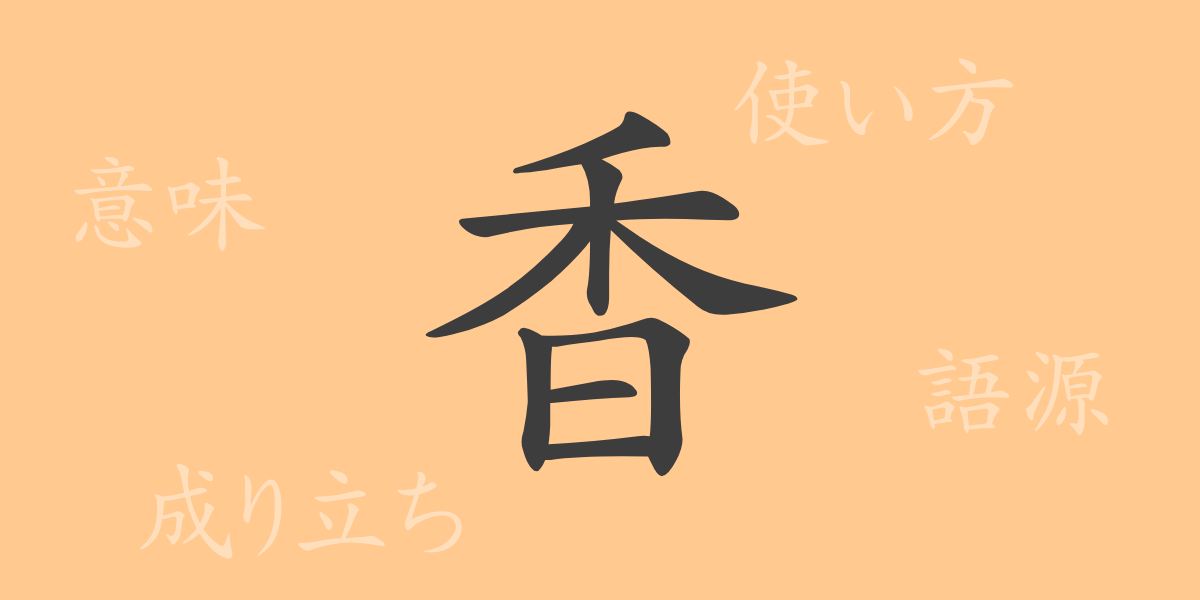Japanese script culture is enriched by kanji, characters with deep history and expressive power. Among them, the kanji “香(こう)” stands out as it stimulates the senses and evokes memorable images. This article delves into the meaning, origin, and various idioms and expressions used in daily life involving “香(こう)”.
Origin of 香(こう)
The kanji “香(こう)” originated in ancient China from the practice of burning fragrant herbs. The character combines “火(ひ)” meaning fire, with “日(にち)” representing fragrance. This combination conveys the idea of a scent spreading through the air, evolving over time into the modern form “香(こう)”.
Meaning and Usage of 香(こう)
“香(こう)” primarily means “pleasant smell”, but it also extends to “flavor” and “fragrance”, referring to any pleasant sensory experience. Additionally, it can metaphorically represent “reputation” or “charm”.
Readings, Stroke Count, and Radical of 香(こう)
The kanji “香(こう)” has diverse readings and uses derived from its shape and meaning.
- Readings: On-yomi (Chinese reading) is “コウ(こう)”, kun-yomi (Japanese reading) includes “かおり(kaori)”, “かおる(kaoru)”
- Stroke Count: 9 strokes
- Radical: 香部(こうぶ)
Idioms, Phrases, and Proverbs Using 香(こう)
Japanese language features numerous idioms and phrases incorporating “香(こう)”, deeply rooted in daily life and sensibility.
- 香水(こうすい): Perfume
- 香辛料(こうしんりょう): Spices for flavoring food
- 芳香(ほうこう): Pleasant fragrance
- 香典(こうでん): Money given at funerals
- 香ばしい(こうばしい): A good smell from roasted food, also used to describe a warm and attractive personality
Conclusion on 香(こう)
The kanji “香(こう)”, with its image of fragrance, enriches our minds. Through idioms and expressions, it adds depth to Japanese language and conveys sensory beauty. The power of fragrance transcends words, leaving lasting impressions and shaping culture.

























